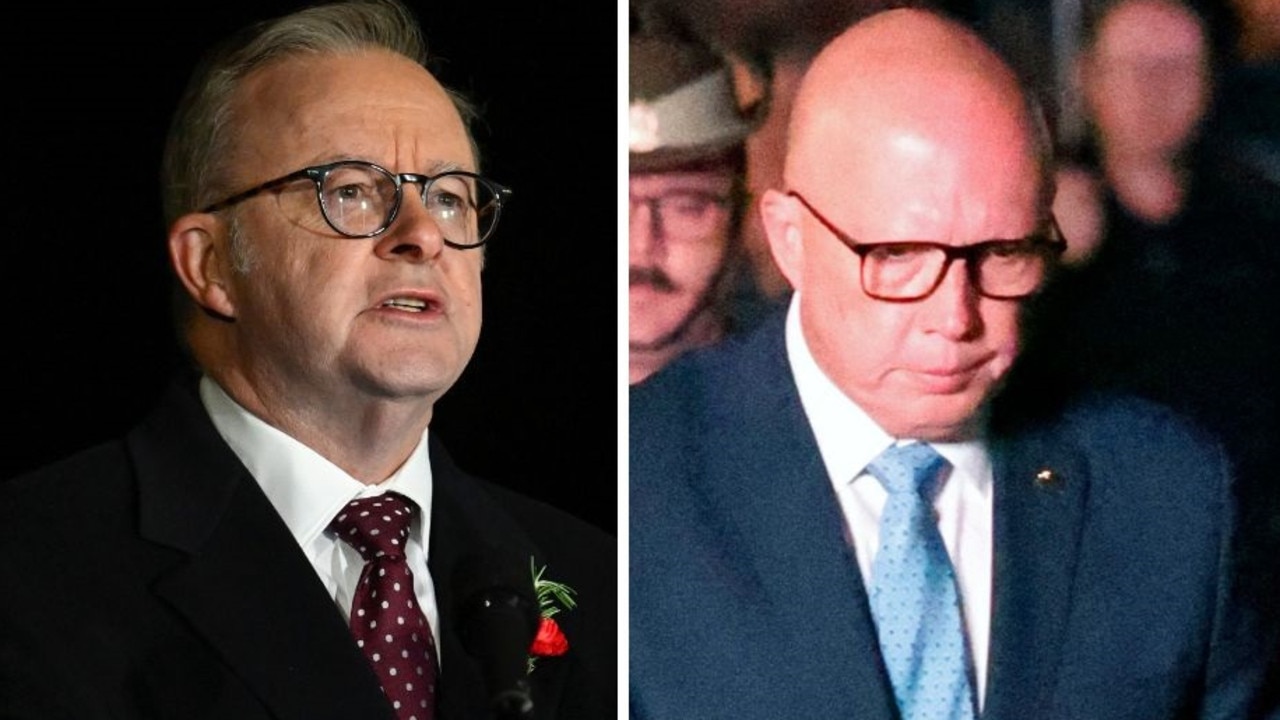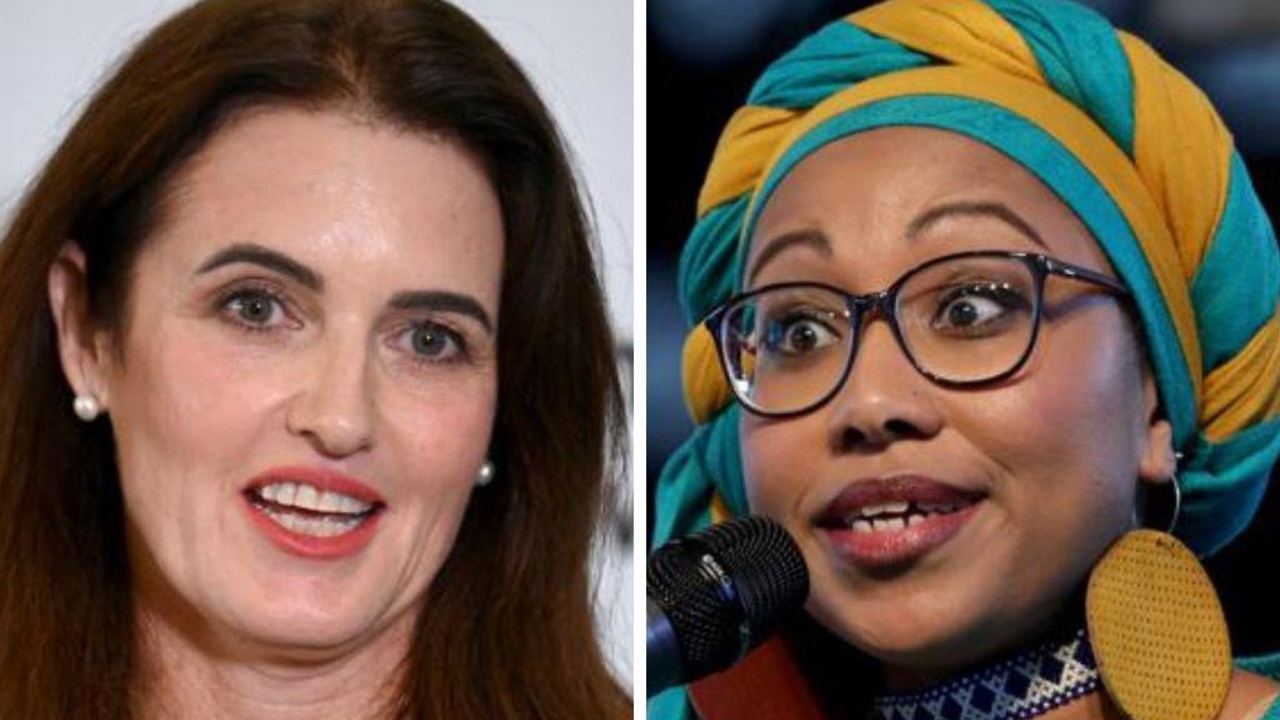Peter Dutton pledges $21bn in extra defence spending over the next five years
Deputy Premier Minister Richard Marles has blasted Peter Dutton’s pledge to pour $21bn into defence as a “pathetic whimper”.
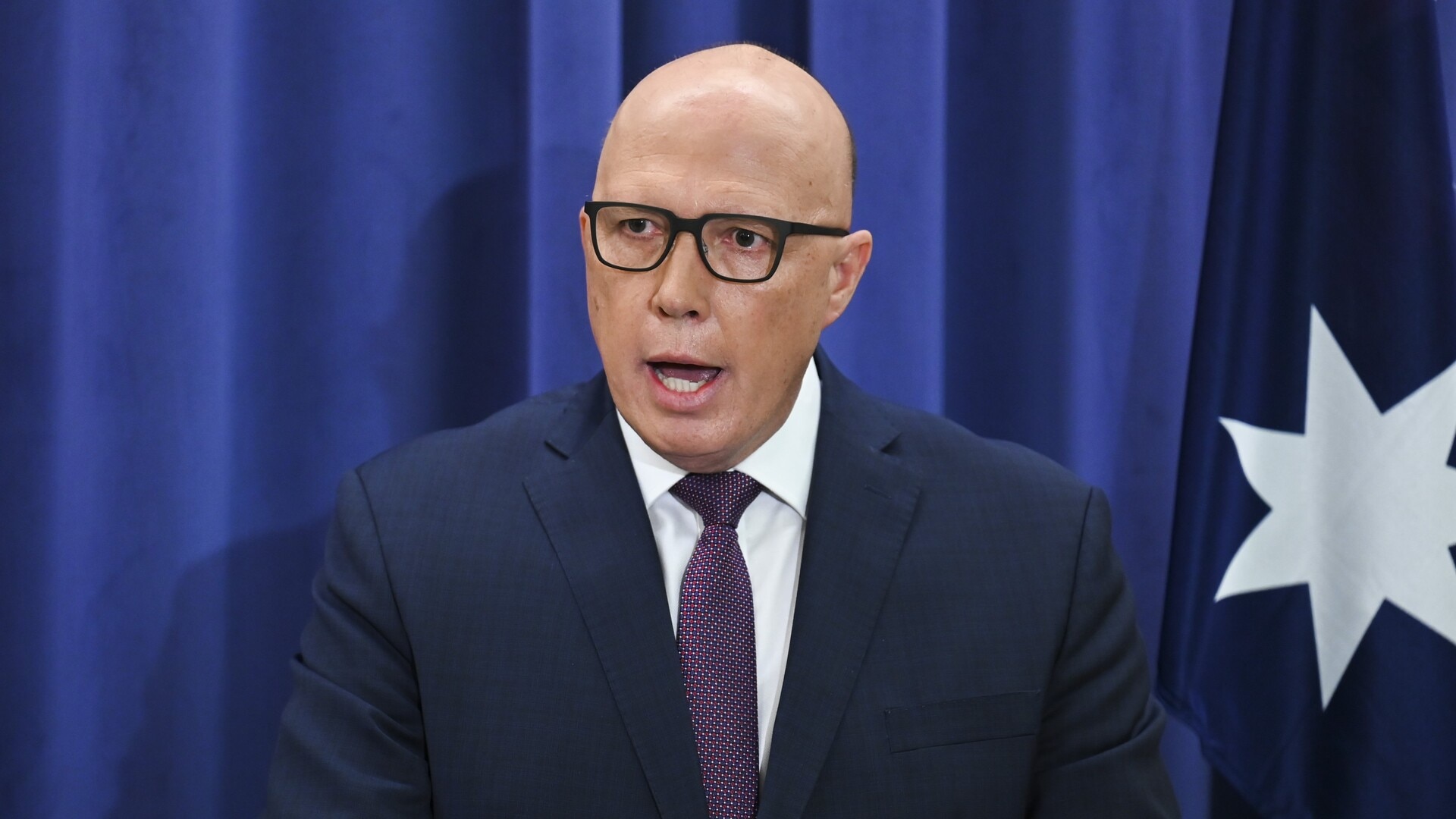
Federal Election
Don't miss out on the headlines from Federal Election. Followed categories will be added to My News.
Peter Dutton would invest $21 billion into Australia’s defence program over five years if elected, lifting spending to 2.5 per cent of GDP by the end of the decade amid increased competition with China and Russia in the Indo-Pacific.
The Opposition Leader will on Wednesday unveil his centrepiece defence pledge to inject an extra $12bn into the budget over the four-year forward estimates, bringing the total to 2.4 per cent of GDP, with a further $9bn to be spent by 2030.
Deputy Prime Minister Richard Marles slammed the commitment as a “pathetic whimper”.
“We’ve engaged in the biggest peacetime increase in defence spending since the Second World War. That’s the fact of the matter, and it’s not some vague commitment, it’s not a target, it’s not an aspiration. It’s in the budget,” Mr Marles said on ABC radio.
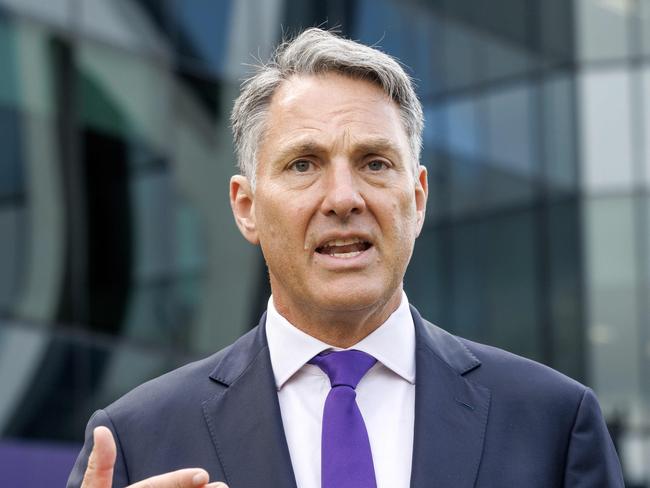
“It is a much bigger increase than anything we saw from the Liberals when they were in government.
“What we have here is not really a defence policy from the Liberals. It is a pathetic whimper.”
Labor’s own policy will get defence spending to just over 2.3 per cent of the GDP by 2034.
US President Donald Trump has been pressuring allies to lift their defence spending to at least 3 per cent of GDP, with experts warning Australia is falling increasingly behind China’s military capability.
Under Labor, Defence spending is on track to reach about 2.23 per cent of GDP by 2029, and increase to at least 2.36 per cent by about 2034.
The Coalition’s election pledge includes $3bn already announced to acquire an extra 28 F-35 joint strike fighter jets, which were scrapped by Labor as part of a re-prioritisation of defence spending.
Mr Dutton said while Anthony Albanese regularly told Australians they live in the “most precarious period since the end of the Second World War”, the Prime Minister has done “nothing about it” other than “rip money out of defence”.
He said this has weakened “strength and morale” within the nation’s armed forces.
“The Coalition will strengthen the Australian Defence Force and support our servicemen and women to keep us safe today and into generations ahead,” he said.
Coalition defence spokesman Andrew Hastie said there must be a “sense of urgency” to equipping the ADF.
“A Dutton Coalition government will back Australian workers and businesses in defence industry to develop the sovereign capabilities our country needs,” he said.
“They are a critical enabler to the Australian men and women in uniform.”
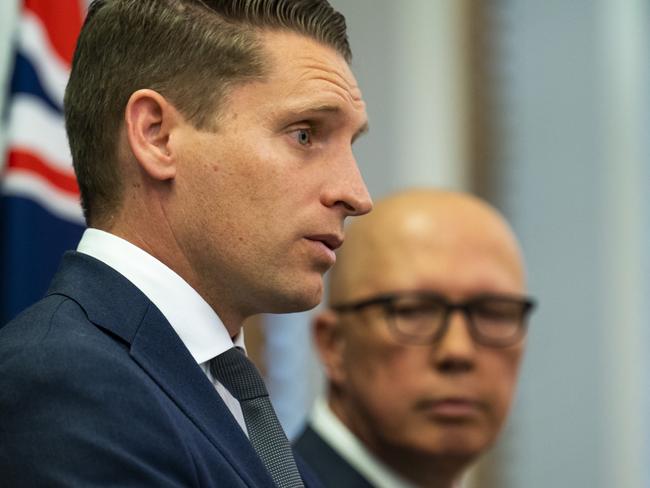
Meanwhile, defence experts are warning Australia will be soon left unable to combat China’s growing arsenal of sea mines in the Indo-Pacific due to delays in the navy’s transition to new drone technology to detect them.
Australia’s Huon Class minehunter coastal ships will be decommissioned within 18 months, with plans to replace them with uncrewed drones.
But experts say they will not be ready in time, leaving Australia’s ports and naval bases exposed as China threatens to flex its military muscle and Russia continues to improve ties with Indonesia – with Russia’s ambassador to Jakarta telling Australia this week it has “no cards” to play in the region.
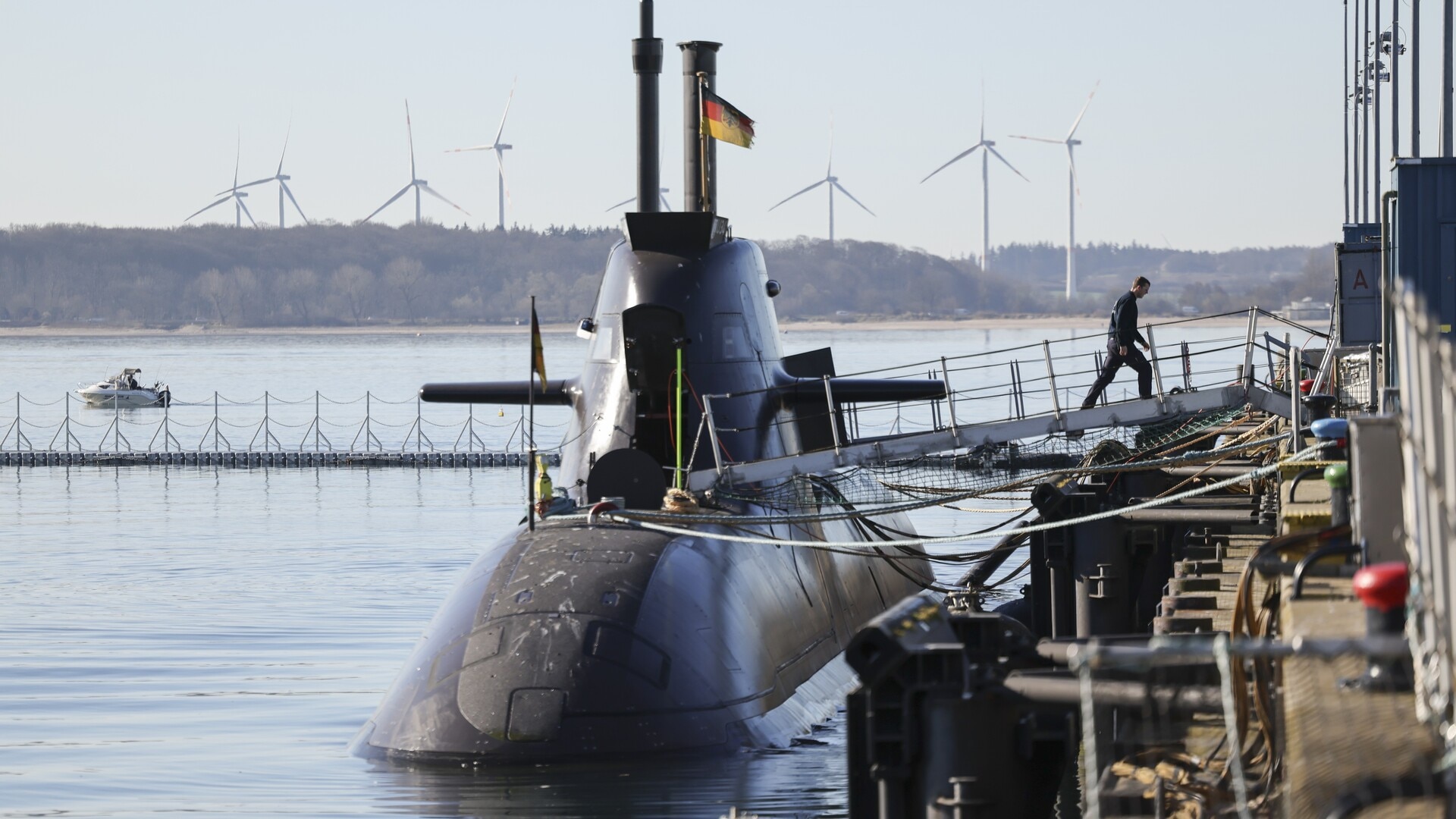
The glaring hole in Australia’s defence was part of a $30bn a year shortfall of defence spending recommended in a 2009 White Paper review but never delivered.
Defence experts have warned that capability gaps will increase as Australia’s $368bn AUKUS program requires defence chiefs to cut costs to balance the budget.
Jennifer Parker, who served in the Royal Australian Navy for 20 years and is now adjunct fellow at the UNSW in Canberra, said Australia “definitely has a capability gap in counter-mine warfare”.
“This is an example of how the defence budget is under pressure. You would not design a defence strategy for Australia without counter-mine warfare,” she said.
Deputy Prime Minister and Defence Minister Richard Marles said “the Albanese Government has increased defence funding to record levels, with the biggest peacetime increase since the end of the Second World War”.
More Coverage
Originally published as Peter Dutton pledges $21bn in extra defence spending over the next five years



